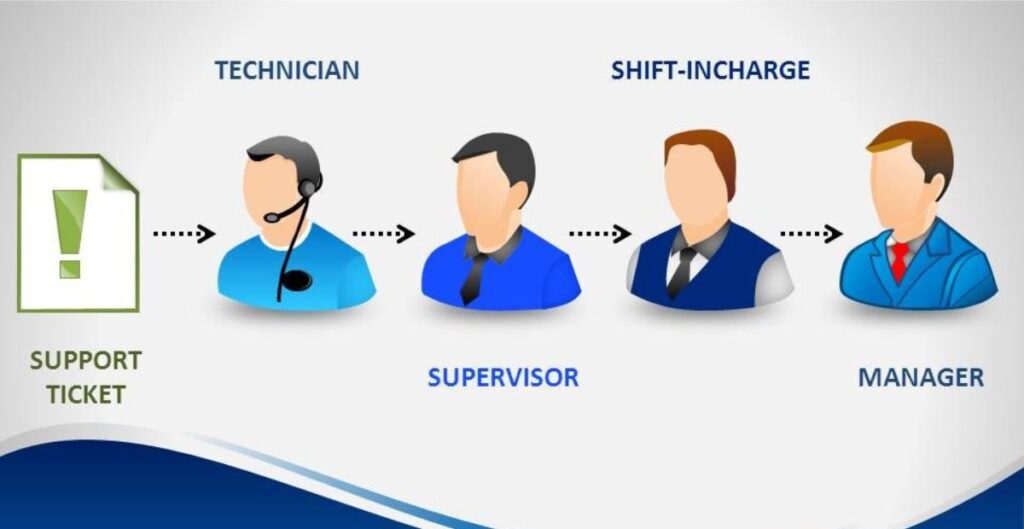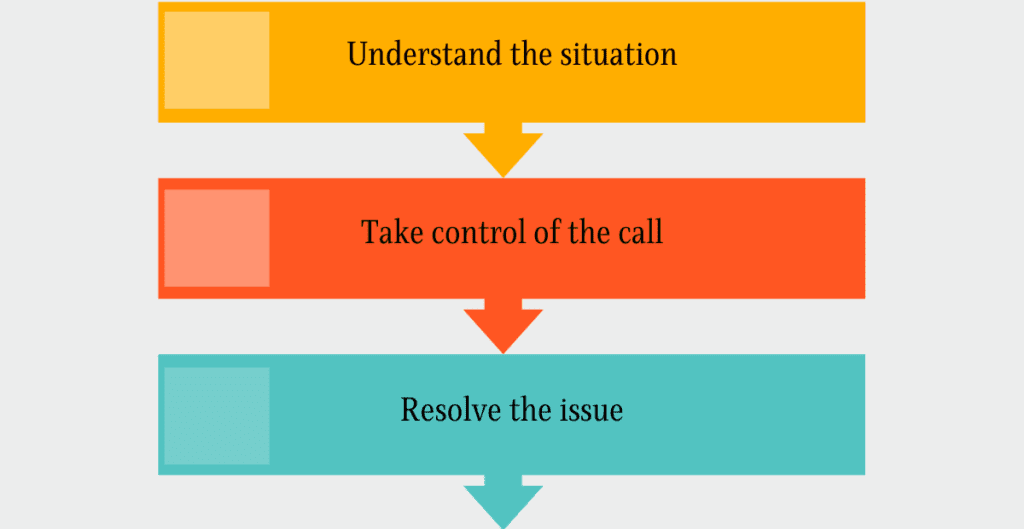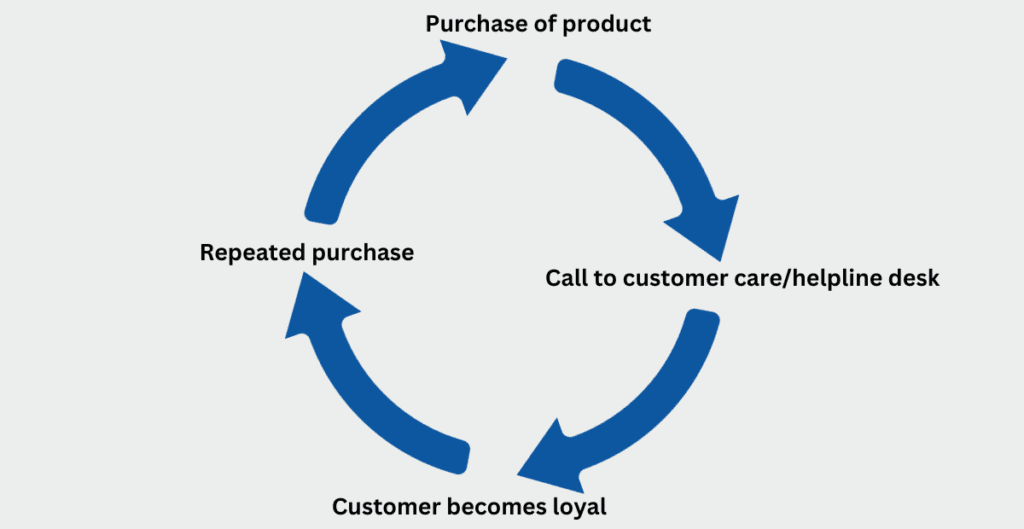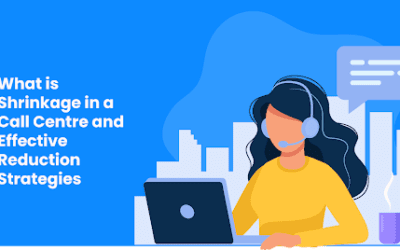As a customer experience manager or support supervisor, escalation calls help you fix problems your agents can’t. But what happens when they become fresh problems for you?
We’ve compiled the best tips and tricks for handling escalation calls.
Whether you run a call centre business or an in-house call centre, in this blog, we share a step-by-step guide for handling escalation calls and becoming a pro at delivering top-notch customer service.
Ready to turn escalation calls into opportunities to convert complex customers to your brand loyalists?
For house cleaning purposes, let’s begin by understanding call escalations.
What are escalation calls?

Escalation calls occur when the first support line cannot handle a customer’s complaint.
It often leads to angry outbursts from the customer or the call agents. So, your agent forwards the call to a higher authority in the contact centre or call centre software that your team uses.
Why do customers escalate calls?
There are 4 main reasons customers may need to escalate their calls to you:
- Lack of satisfaction: The customer’s issue doesn’t get resolved satisfactorily. So, they may escalate the call in search of a better outcome.
- Frustration with wait times: Long wait times can lead to increased frustration. This boosts the likelihood of an escalation.
- Feeling unheard or disrespected: The customer feels the call agent isn’t attentive. They may decide to escalate the call to find someone who’ll listen.
- Complex issues: The customer’s issue may be too complicated for the first support line to resolve. This can also lead to escalation.
But no matter the reason or type of escalation, how you handle it may help or worsen the situation.
Below, we share why you shouldn’t play with escalation calls.
What is the importance of handling escalation calls effectively?
Let’s walk you through some of the key benefits:
- Improved customer satisfaction: Your customer feels heard and satisfied with the outcome. This results in increased loyalty and positive word-of-mouth.
- Happier agents: Some customers can get stressful and challenging for your agents. Effectively handling escalation calls can improve agent morale and reduce burnout.
- Better business outcomes: Satisfied customers and happy agents increase business outcomes. This includes increased sales and decreased customer churn.
If you resolve an escalation call, you’re not only helping a customer; you’re saving your business an arch enemy. And possibly winning an evangelist for your brand.
But how do you do this?
Let’s dive into the nitty-gritty of each step for handling call escalations.
How to handle escalations like a pro

The diagram above already lets the cat out of the bag. But let’s explain each of them.
Step 1: Understand the situation
How well you understand the customer’s situation determines how quickly you reach a satisfactory resolution.
Here are three key steps to help you:
- Listen: Pay close attention to customers’ concerns and confirm their feelings. This helps you build trust and rapport, making it easier to find a resolution.
- Identify the root cause: Ask questions and gather information to determine what’s bothering the customer.
- Gather information: Ensure you gather and save all the information you need. This includes customers’ account details and their previous interactions/purchases.
Let’s move to the next step.
Step 2: Take control of the call
Now that you understand the situation, it’s time to take action in handling the escalation call.
You’ll need to take control of the call. These three points will help you:
- Remain calm and professional: No matter how difficult the situation is, stay calm and professional. This diffuses the situation and demonstrates your competence with the customer.
- Assert authority: Guide the conversation proactively to control the call. This helps prevent the situation or problem from escalating further.
- Use empathy: Put yourself in your customer’s shoes. Then, show genuine understanding and concern. This builds a connection and a feeling of satisfaction with the customer.
After this, the most important step comes next.
Step 3: Resolve the issue
Resolving your customer’s issue is the ultimate goal of handling customer escalation calls.
Here are 3 things you should do:
- Offer solutions: Provide options to resolve the issue. Communicate in simple terms what you can do to help.
- Explain the resolution process: Share with your customer the possible solutions to their problem. Then, take the necessary steps to make it work.
- Follow up: Check in with your customer after resolving their issue. You can measure your customer’s satisfaction by following up. Address any further concerns that may come up.
Put these steps into practice to handle escalation calls and see their magic.
Even if you become a pro, remember that the goal isn’t only to resolve call escalations. The goal is to prevent them from happening in the first place.
How do you prevent or reduce escalation calls in your call centre?

As you know, prevention is better than cure. In this case, prevention is better than resolving escalation calls. You’ll ensure unique customer experiences if you reduce the number of escalation calls in your call centre.
Here are practical ways to do this:
- Identify and address potential escalation triggers: Find the root cause before it becomes a bigger issue. Address those triggers by providing proactive solutions. You can do this by providing your agents with contact centre software that allows you to supervise and review how your agents resolve customer complaints.
- Improve the process: Provide your agents good communication channels and tools like TelebuHub’s internal CRM. Your call centre agents can keep easy track of customers’ escalation calls.
- Provide proper agent training: You boost customer satisfaction by properly training your agents. Equip your call agents with the right tools, like TelebuHub. A contact centre software like TelebuHub with a script feature can help you provide your agents with the right words to use when they speak with your customers.
Although prevention is best, it helps to prepare for eventual call escalations. These best practices for handling escalation calls can help you remain prepared.
9 call centre escalation best practices
You can prepare your agents to diffuse any call centre escalations using some of the best practices.
Let’s take a look at some of the best practices for handling call centre escalations:
- Create a clear escalation policy.
- Train agents on handling escalated calls for best results.
- Empower agents to make decisions.
- Offer resources for handling stress.
- Encourage feedback from customers.
- Review escalation data as often as possible.
- Track calls to identify patterns and address the root causes.
- Foster open and effective communication between agents and management.
- Foster a positive culture in your company that values customer satisfaction.
For a detailed list of best practices across all aspects of your call or contact centre, check out our 22 call and contact centre best practices.
These all will go a long way in reducing the number of escalation calls.
Handle escalation calls with TelebuHub
TelebuHub’s ease of use will help you prevent call centre escalations. Its call recording features help you measure and improve the performance of your agents.
TelebuHub’s unique CRM integration gives your call centre agents easy access to customer information. This boosts your first-contact resolution rates, too.
TelebuHub also offers flexible pay-as-you-use pricing plans. So, wait no more. Schedule a demo to see how TelebuHub can transform your contact centre.






0 Comments